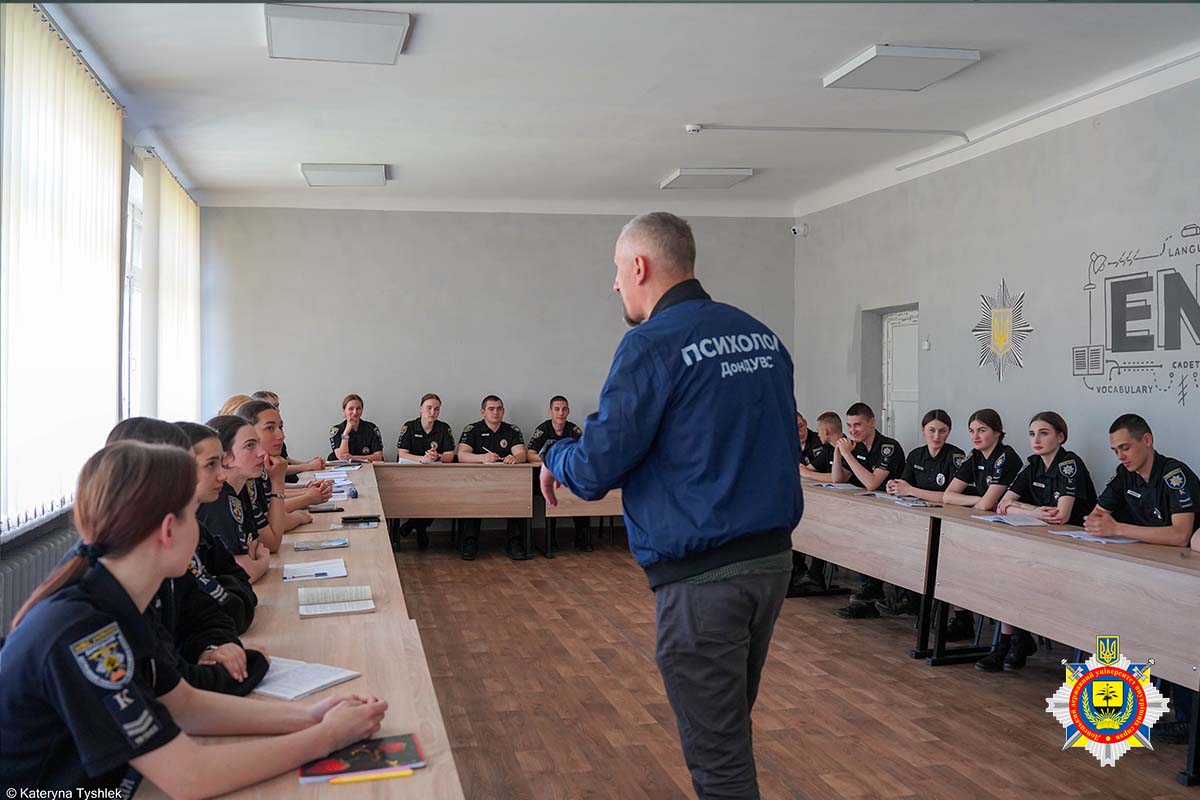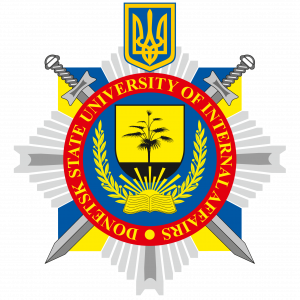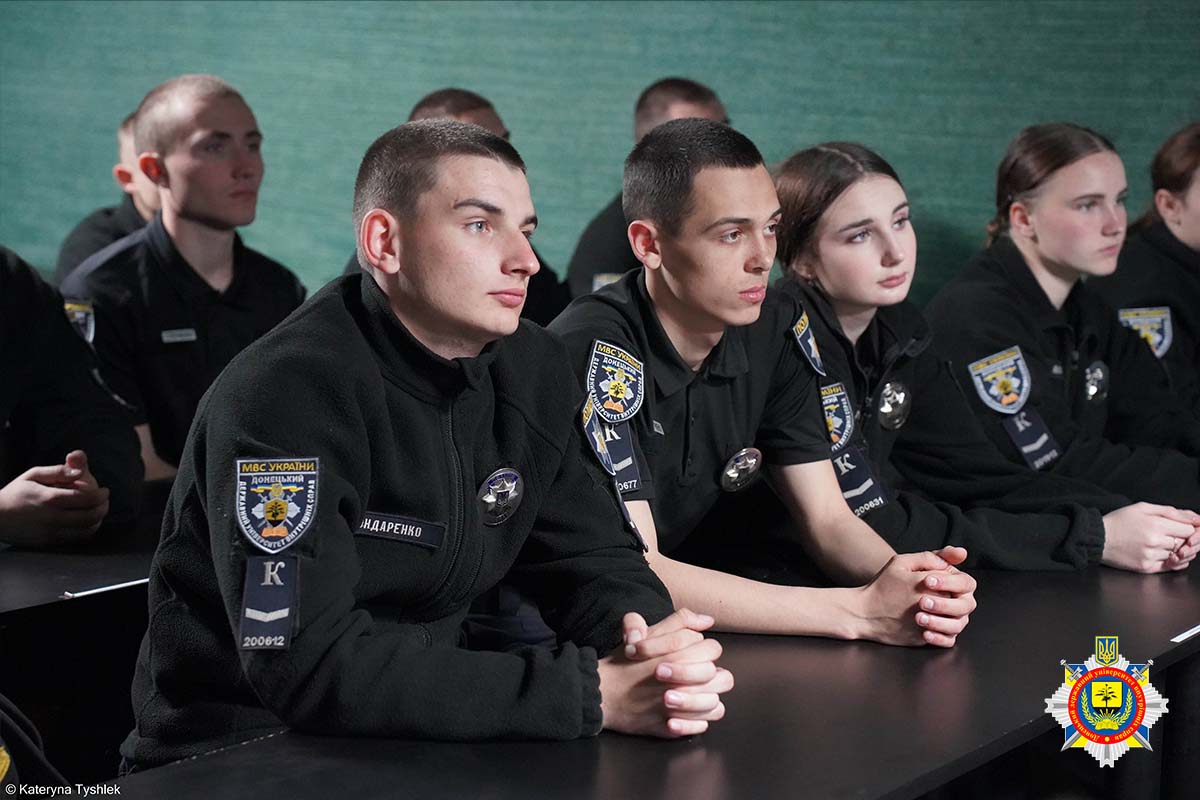Anti-crisis countermeasures against burnout, suggested by the experienced EU leading psychologists and principles of virtuous behavior of the staffers of the Ministry of Internal Affairs were discussed by the participants of trainings for the EU Career Day at the Donetsk State University of Internal Affairs.
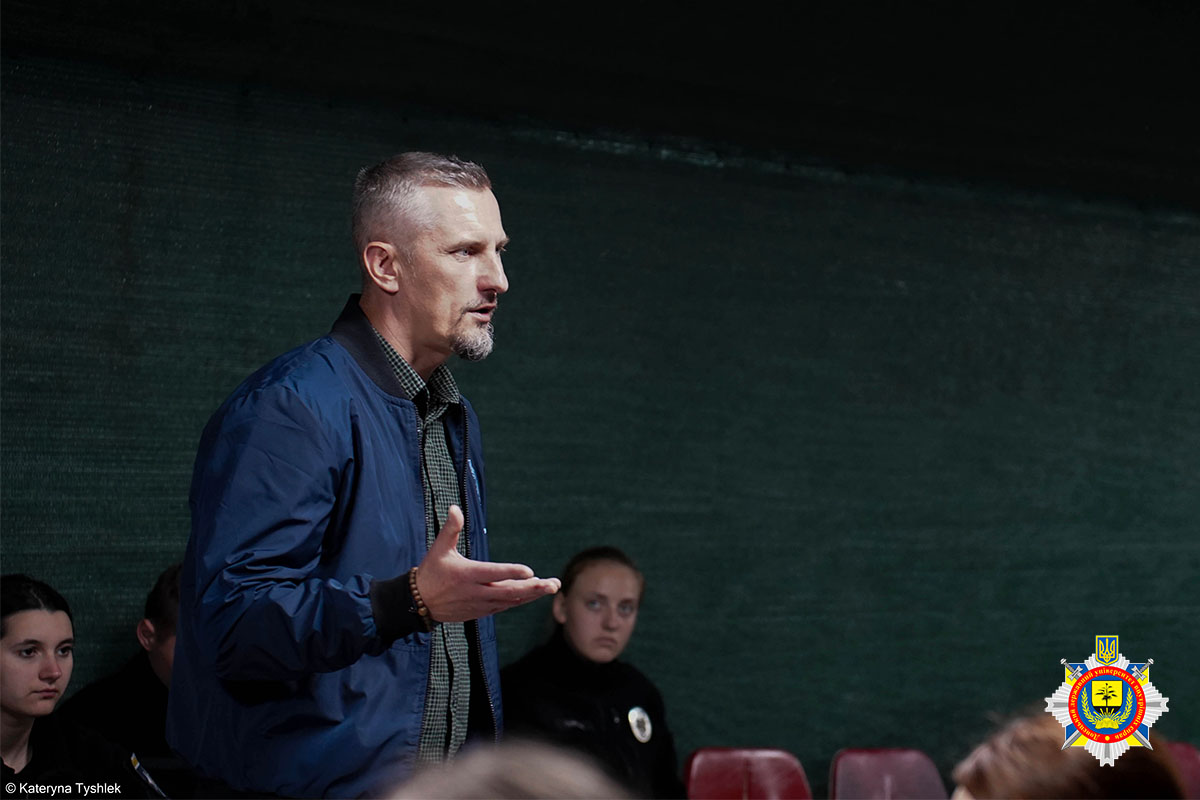
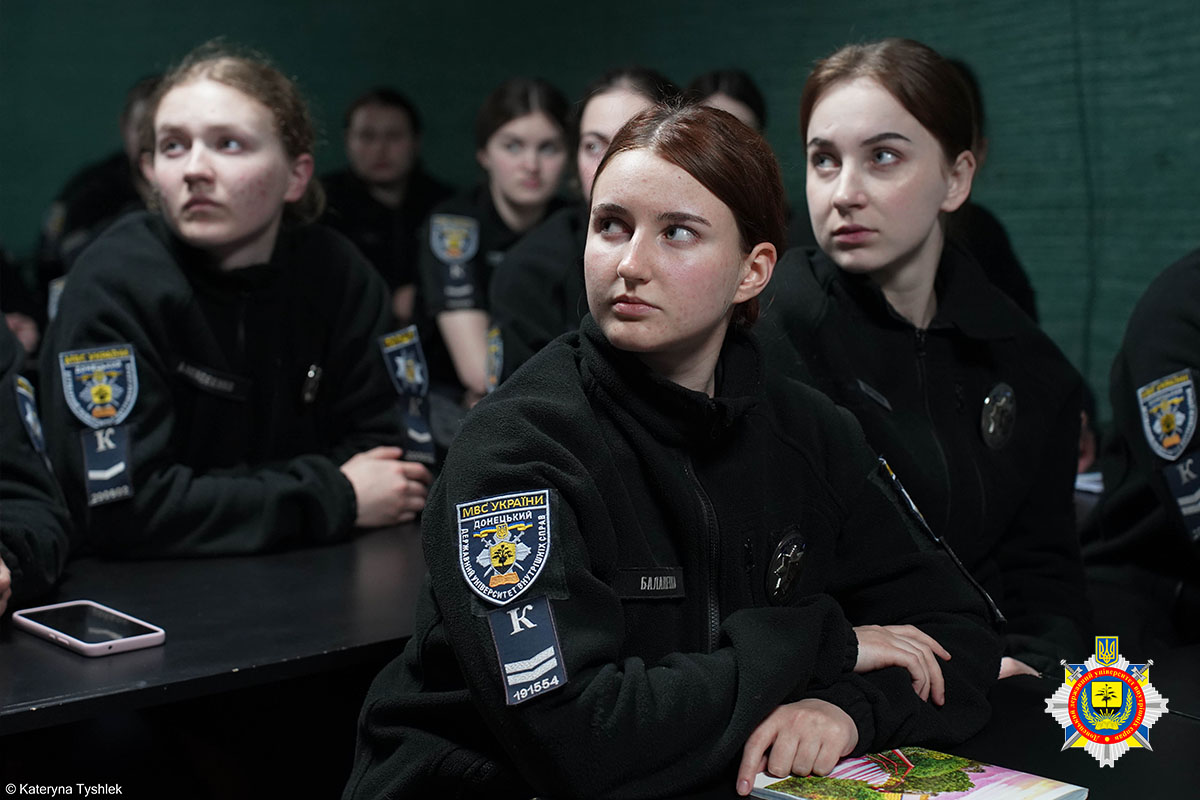 The speakers of the events were: head of the department of extreme and crisis psychology of the DonSUIA, a crisis psychologist, coordinator of the “Kolovorot” center Andrii Fomenko; a commissioner for anti-corruption activities of the DonSUIA Kateryna Udod.
The speakers of the events were: head of the department of extreme and crisis psychology of the DonSUIA, a crisis psychologist, coordinator of the “Kolovorot” center Andrii Fomenko; a commissioner for anti-corruption activities of the DonSUIA Kateryna Udod.
Andrii Fomenko informed those present about the method of paradoxical intention, which is one of the world-known methods of overcoming post-traumatic stress states. It was proposed by the Austrian psychotherapist V. Frankl. The method of making a person recover from suffering, which works according to the principle “from the reverse”, was worked out on the eve of the Second World War and improved by Frankl during his stay in German concentration camps.
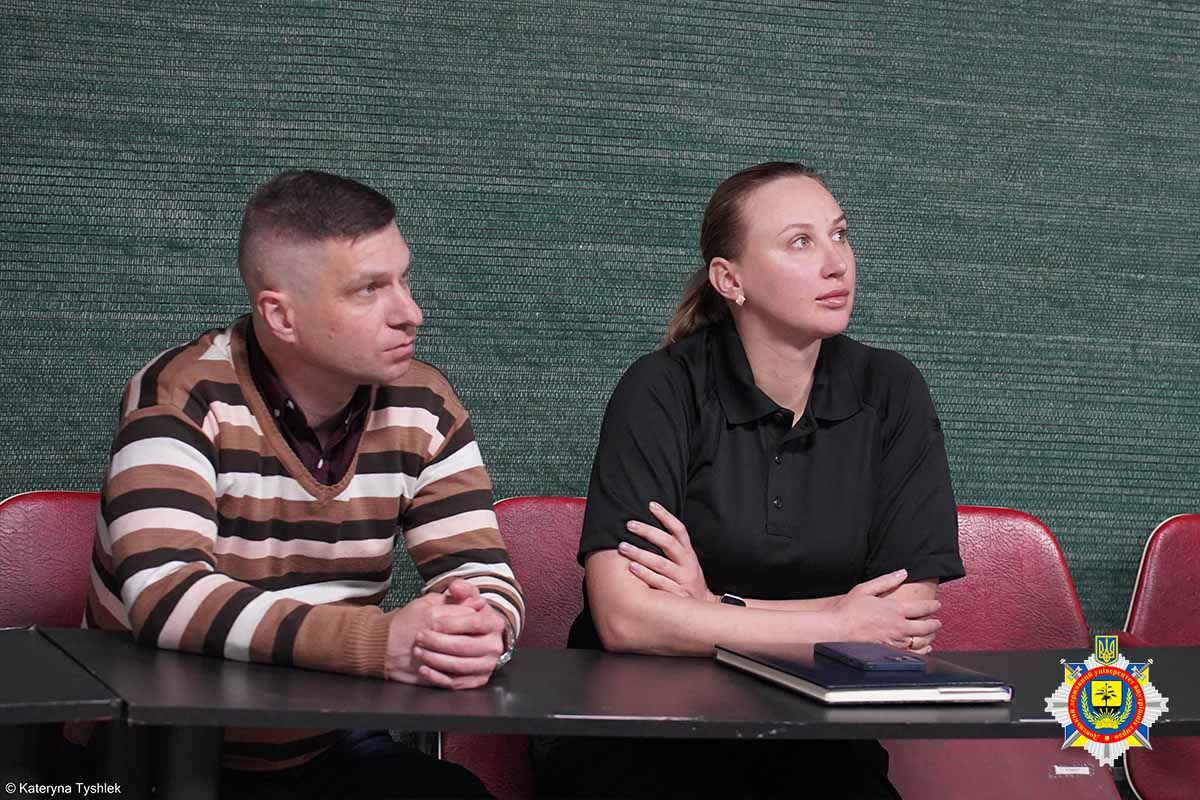
 The participants of the training learned to transform the obtained painful feelings into experience and to perceive their negative reactions as an integral part of their personality.
The participants of the training learned to transform the obtained painful feelings into experience and to perceive their negative reactions as an integral part of their personality.
The moderator of the second training, Kateryna Udod, familiarized the higher education seekers with general requirements (principles, rules) of the virtuous behavior of a staffer of the Ministry of Internal Affairs and informed them about the relevant restrictions and prohibitions, the observance of which is the moral duty of every police officer.
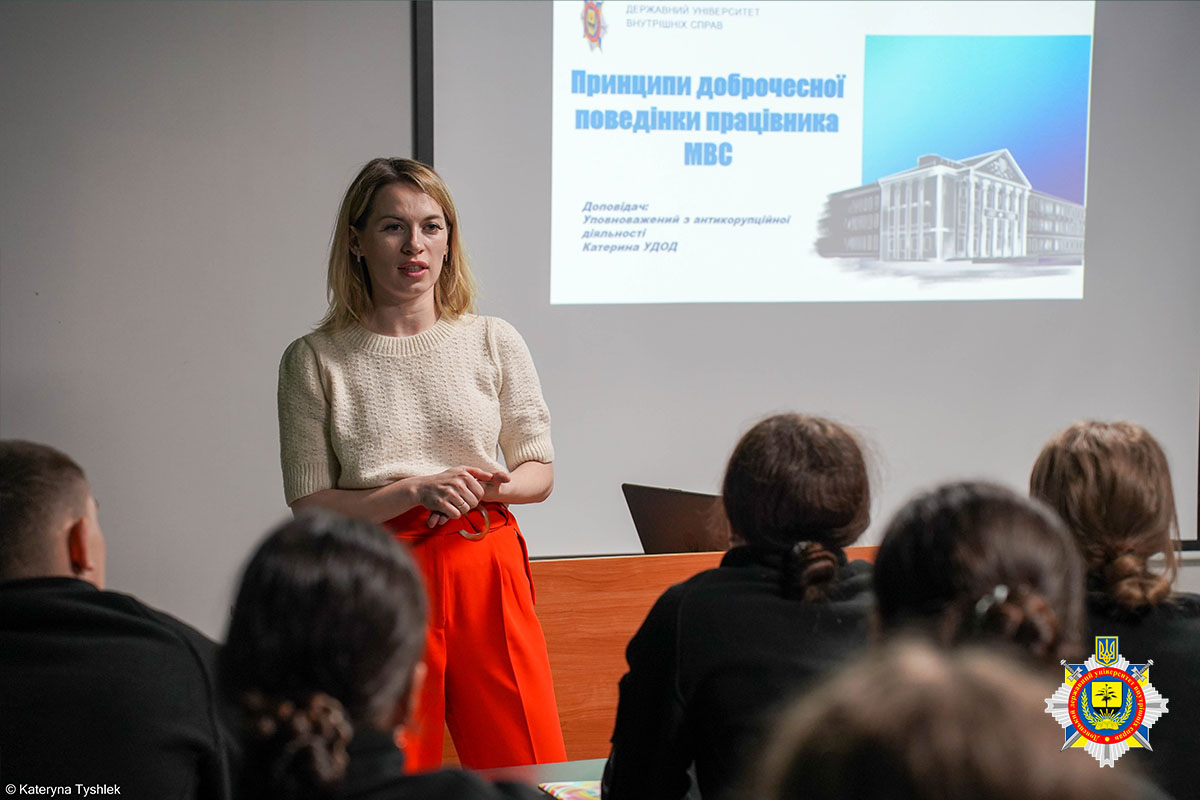
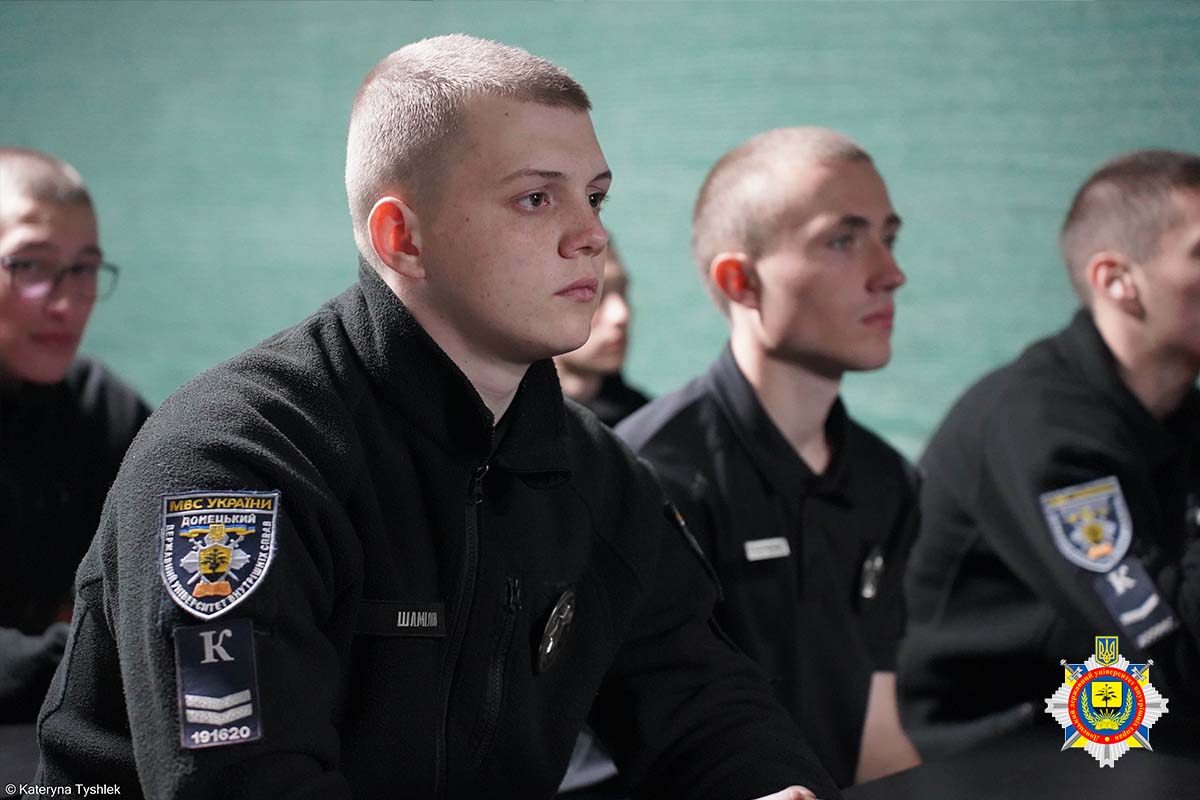

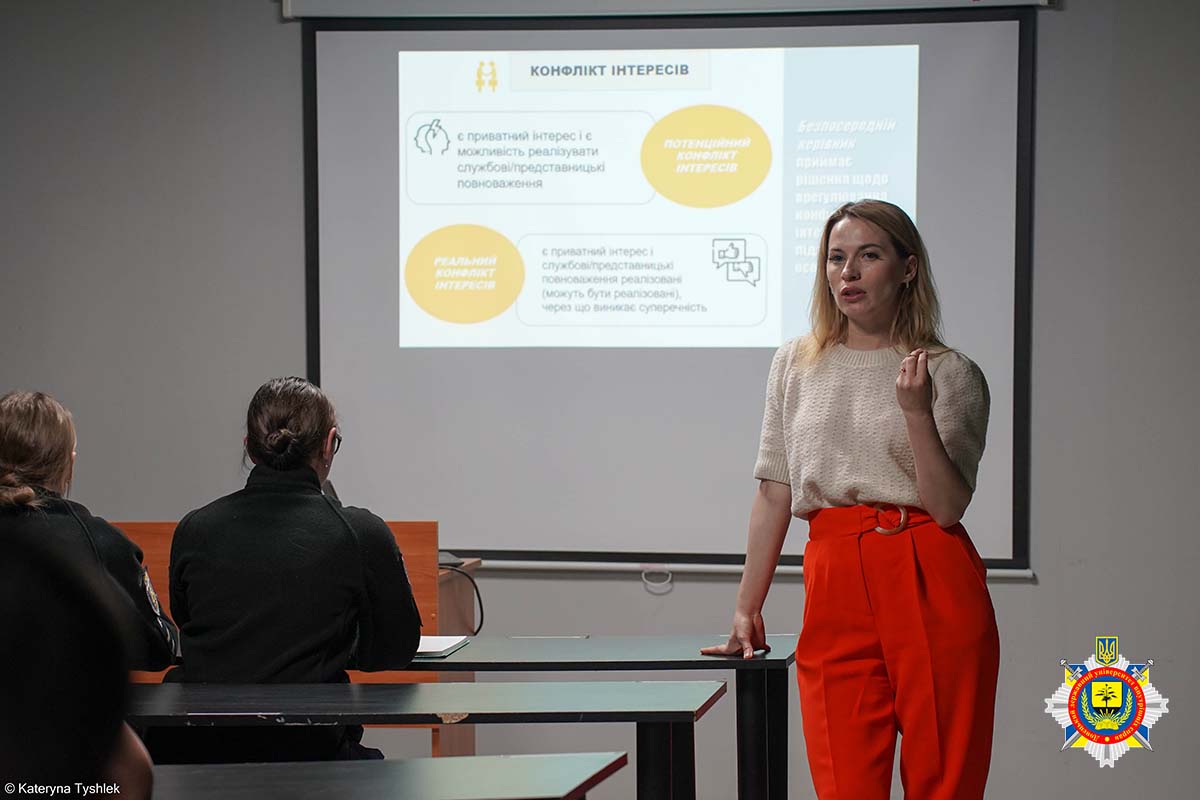 The participants discussed the main principles of virtuous behavior of law enforcement officers: “zero” tolerance for corruption, impartiality, honesty, competence, openness, transparency, refraining from executing illegal orders or errands, observing restrictions on the use of official position, confidentiality, prevention of conflict of interests, refraining from receiving illegal benefits and gifts, observance of restrictions on multiple jobs and combination with other types of activities, observance of restrictions on joint work of close persons.
The participants discussed the main principles of virtuous behavior of law enforcement officers: “zero” tolerance for corruption, impartiality, honesty, competence, openness, transparency, refraining from executing illegal orders or errands, observing restrictions on the use of official position, confidentiality, prevention of conflict of interests, refraining from receiving illegal benefits and gifts, observance of restrictions on multiple jobs and combination with other types of activities, observance of restrictions on joint work of close persons.
